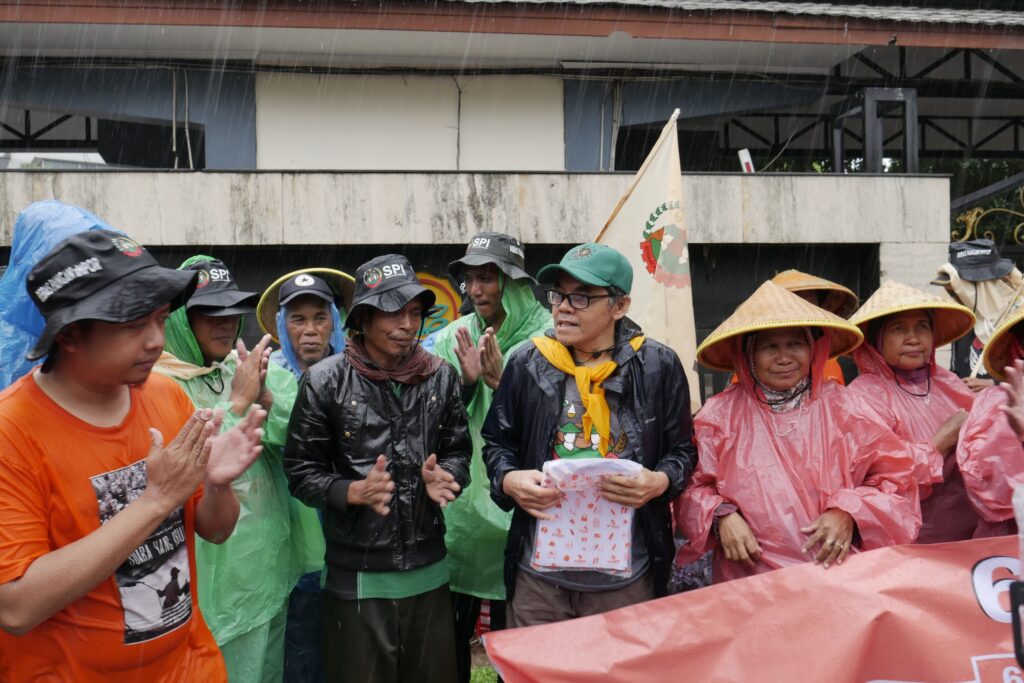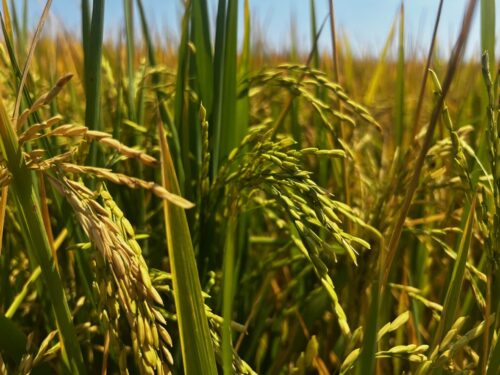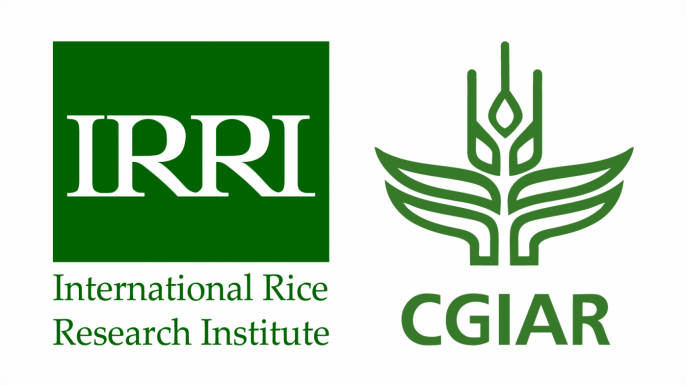Tags
Rice imports lead farmers to bankruptcy, endangers food sovereignty: Serikat Petani Indonesia
Press Release by the Indonesian Peasants’ Union (Serikat Petani Indonesia – SPI)
The government has once again announced rice imports with a quota of 3 million tons throughout 2024. Some of the imported rice, or about 2 million tons, is targeted to arrive in January-March 2024. The government, through the Coordinating Ministry for Economic Affairs, the Ministry of Agriculture, the Ministry of Trade, the National Food Agency, and Perum Bulog1, claims that rice imports are being carried out in this political year to meet the Government Rice Reserve (CBP) and Social Assistance needs. However, March, April, May, and June 2024 are the peak harvest seasons for rice farmers.

The SPI assesses that Indonesia is in a dire situation as it becomes increasingly dependent on food imports. Especially for rice, the import of 3.3 million tons in 2023 was the largest rice import by the government in the last 25 years since 1998. Furthermore, the Central Statistics Agency (BPS) stated that rice imports in 2023 increased by 613.61% compared to 2022. This is not to mention the rice imports throughout 2024.
The government’s decision to import rice in 2024 is truly puzzling.
The government argues that the situation is abnormal due to the El Nino phenomenon. This argument continues to be echoed by the government, although climate data for 2024 indicates a return to normal conditions. The government’s claim that rice production has decreased is unfounded and cannot be used as justification for imports.
Similarly, the provision of rice for social assistance will continue until June 2024. Because even though imports have been carried out as in the past two years, consumer rice prices remain high, even exceeding the Highest Retail Price (HET) set by the government. In April 2023, SPI proposed that the improvement of the Harvested Grain and Rice Purchasing Price (HPP) must approach market prices. However, the National Food Agency only increased the HPP of Harvested Grain (GKP) at the farmer level by Rp. 800, from Rp. 4,200 per kg to Rp. 5,000 per kg.
This insignificant increase practically makes Perum Bulog unable to meet the CBP target. Farmers also prefer to sell paddy to parties other than Perum Bulog at fair prices to cover their increasing production costs. As a result, consumers are forced to buy rice above the HET. Perum Bulog’s inability to fulfill the CBP indicates a recurring problem every year. Perum Bulog’s rice stocks are limited because it cannot absorb farmers’ paddy and rice. As a result, rice prices cannot be controlled through market operations.
In fact, a massive influx of food imports in Indonesia has been occurring since 1998.
The signing of a Letter of Intent with the International Monetary Fund (IMF) encouraged Indonesia to open its food market to foreign imports, including rice, wheat flour, sugar, garlic, beef, and other food crops. Most recently, the false solution of food imports is reinforced by the enactment of the Omnibus Law Law No. 6 of 2023 concerning Job Creation. The Job Creation Law nullifies various laws that previously favored farmers. If the trend of food imports continues, it will further bankrupt farmers in Indonesia.
Since the rice imports began to flow late 2023, the price of paddy at the farmer level has started to decline from a range of Rp. 7,000-8,600 per kg to around Rp. 6,000 per kg in early January 2024. Such conditions indicate that the perspective of food security used by the Indonesian government actually increases dependence on imports even more. Not to mention Indonesia being the world’s largest wheat importer. The impact of expensive rice prices leads lower-middle-class people to buy cheaper food alternatives such as instant noodles. Meanwhile, the upper class consumes bread. Both of these foods are made from wheat. This is very dangerous because the decrease in rice consumption actually increases the demand for wheat.
In this regard, SPI believe that the solution to the food problem lies in Food Sovereignty, one of its principles being the fulfillment of rights, whether it be the right to land, seeds, water, or other production factors.
Meanwhile, in terms of food security, we question the decision to promote imports. This makes a country that can produce food unable to produce food independently, only considering economic aspects.
Based on this, SPI calls for the following attitudes and demands:
- Reject Rice Imports Rice imports will affect the price of paddy and rice at the farmer level as they enter the peak harvest season in the first semester of 2024. The government must also repeal the Job Creation Law and reinstate articles that favor farmers such as the Food Law; Farmer Protection and Empowerment Law; Sustainable Agricultural Land Protection Law.
- Government Rice Reserves (CBP) Must Come from Farmers The CBP target can be achieved if the HPP is at a reasonable level. This will attract farmers to sell to the Government/Perum Bulog rather than to other parties (private or middlemen).
- Increase the Purchase Price (HPP) of Paddy and Farmers’ Rice The National Food Agency must update the HPP of paddy and farmers’ rice to a fair price.
- Revision of the Minister of Agriculture Regulation No. 67 of 2016 on Farmer Institutional Development The Ministry of Agriculture does not comply with Constitutional Court Decision No. 87/PUU-XI/2013 which facilitates farmer institutions formed by farmers.
- Agrarian Reform for New Rice Fields Land for farmers, not corporations. Food farmers must be supported by the government through Agrarian Reform and new paddy field printing programs.
- Subsidies for Farmers, Rice Production Restructuring, and Distribution Giving subsidies to farmers should not only be in the form of fertilizer subsidies but also in direct subsidies. Because farmer organizations must be involved in every policy decision. This is because the government often ignores the aspirations of farmers and farmer organizations, resulting in policies that are not favorable to farmers, such as the decision to import rice.
Published Date: February 20, 2024






